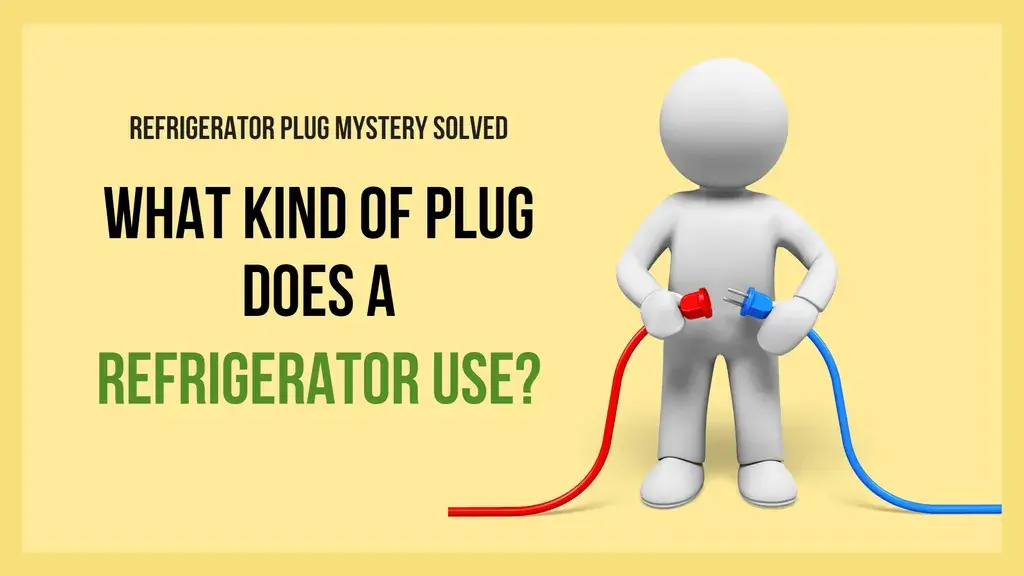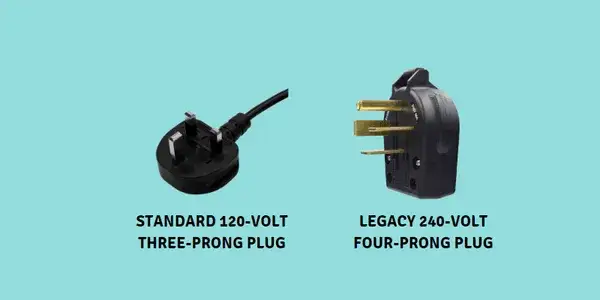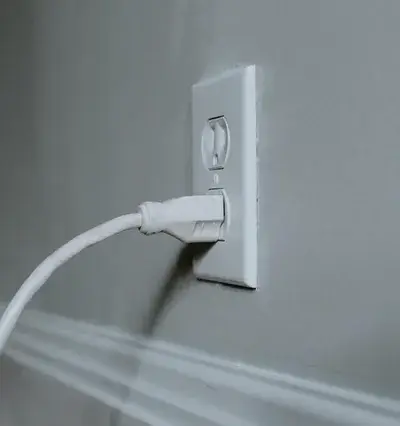Having a refrigerator is an essential part of our daily lives. However, suppose you’re planning on purchasing a new refrigerator or moving your current one to a new location. In that case, you may wonder about the kind of plug and outlet it requires.
In this article, we’ll look at the different types of plugs available for refrigerators so that you can make the right decision when purchasing one. Additionally, we’ll discuss some safety tips to keep in mind when deciding on a new outlet for your fridge. Ready? Let’s get started!
Table Of Contents

Types of Refrigerator Plugs
When it comes to plugs for refrigerators, there are a few different options offering their own unique benefits.
The most common type of plug used with refrigerators is a standard 120-volt, three-prong plug. This plug is compatible with most outlets found in residential homes. It is typically the plug that comes with a new fridge. This plug is relatively easy to install and requires no additional wiring.

On the other hand, if you have an older or large refrigerator, it may have a 240-volt, four-prong plug. This plug requires a 240-volt outlet offering more stability than its three-prong counterpart. This plug is typically found in kitchens and other areas where large appliances are used. Additionally, this plug generally requires extra wiring or rewiring by an electrician or similar professional.
If you need to know which kind of plug your fridge has, it’s essential to check the manufacturer’s documentation or consult a professional electrician before attempting to plug it in.
Determining your Refrigerator Plug Type
Determining the plug your refrigerator uses can be important for several reasons. For example, you may be moving to a new home, or you may purchase a new refrigerator and want to confirm that it will work with the outlets in your kitchen. Whatever the reason, there are a few easy steps you can follow to determine the type of plug your refrigerator uses.
First, locate the label or manual for your fridge. This should list the required voltage and amperage for the appliance and the type of plug it uses. Alternatively, you can look at the plug itself and compare it to a chart of common plug types to determine which one it is.
Another way to determine the type of plug your refrigerator uses is to check the appliance’s manual or documentation. This information should be readily available and often include details about the kind of plug and voltage required for your refrigerator.

Once you know the kind of plug your fridge requires, you can ensure that you have the correct outlets or purchase the appropriate adapter. It’s always recommended to go with brand-name outlets as they meet high-safety standards and carry more extended warranties than generic brands.
Different Country Refrigerator Plugs
When it comes to powering appliances, you need to ensure the plugs you use are suitable for your country. For example, the US, the UK, and other countries have different plugs used in refrigerators. Therefore, awareness of the plug requirements when shopping for a fridge or any other electrical appliance is essential.
US Plugs
The standard 120-volt, the two-pin (unearthed), and the three-pin (earthed) are most commonly used in the United States and Canada.
UK Plugs
The standard plug in the United Kingdom, Europe, and many other countries is a 240-volt, three-pin plug. A three-pin plug is mandatory in the UK as it provides extra safety protection due to its earth connection. Unfortunately, these plugs are generally incompatible with outlets and plugs used in the United States and Canada. So it’s essential to know this difference if you’re planning to move your fridge to a new country or purchase a refrigerator from a different country.
Other Countries Plugs
Other countries may require two pins, or they might have their own unique style of plug altogether, which should be checked before purchasing a refrigerator. In addition to these standard plugs, various adaptors available can allow you to use a fridge with a different kind of plug in a country where the outlets are incompatible. It’s always a good idea to double-check the requirements for your fridge and the outlets in your location to ensure a proper and safe connection.
Refrigerator Plug Safety Tips
Are you considering plugging in your refrigerator? It is a critical step when setting up a kitchen, but it can also be dangerous if not done correctly. Ensuring the safe use of plugs and outlets for your refrigerator is an integral part of proper appliance maintenance. Here are a few safety tips to keep in mind:
- Make sure you have the correct type of plug for your refrigerator. Using the wrong plug type can lead to electrical issues and potentially dangerous situations.
- Check that your outlet is compatible with your fridge’s plug. Overloading an outlet or using an outlet that is not designed for the wattage of your fridge can lead to electrical fires.
- Use caution when plugging in or unplugging your fridge. Avoid pulling on the cord or yanking the plug out of the outlet, as this can cause damage to the cord and potentially create an electrical hazard.
- If you are using an adaptor or extension cord, make sure it is rated for the wattage of your fridge. Using an adaptor or extension cord that is not rated for the wattage of your fridge can lead to overheating and potentially create a fire hazard.
- Additionally, check if the fridge has a ground fault circuit interrupter (GFCI). If it does not have one, install a GFCI device near the outlet to prevent shock hazards.
By following these safety tips, you can help ensure the safe use of your refrigerator and protect yourself and your home from potential electrical hazards.
Final Words
In conclusion, the refrigerator plug mystery is solved. We determined what kind of plug it uses and the safety precautions that should be taken when making the connection. This article will help you feel more confident identifying a refrigerator plug.
If you still need help determining what kind of plug your fridge uses. You can always refer to the manual or contact the manufacturer. Always consult with an electrician for any types of appliances that require hardwiring.
![Power Outlets PISS ME OFF [RANT]](https://refrigeratorblog.com/wp-content/cache/flying-press/pa6AHZSgR6g-hqdefault.jpg)